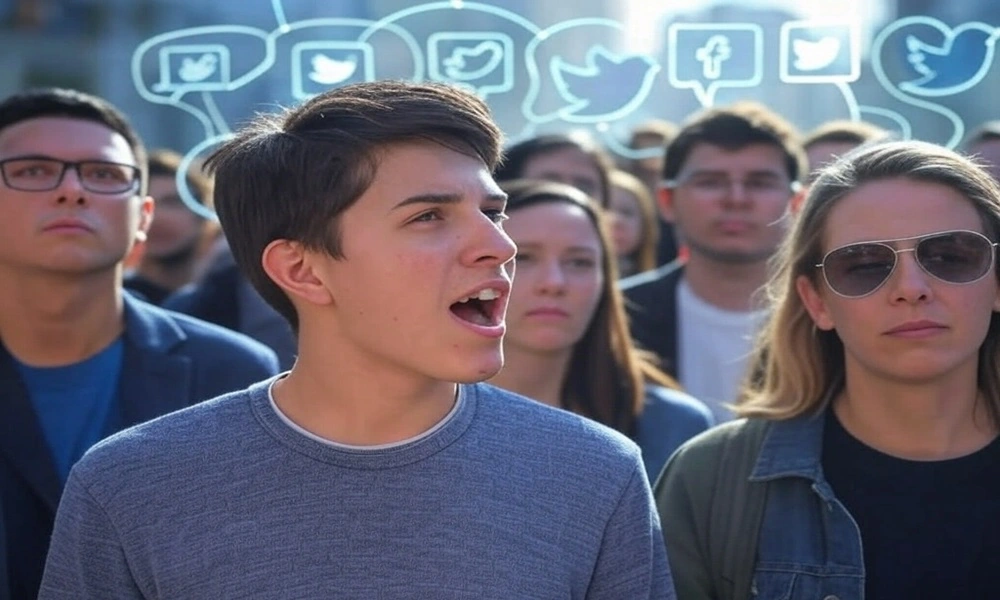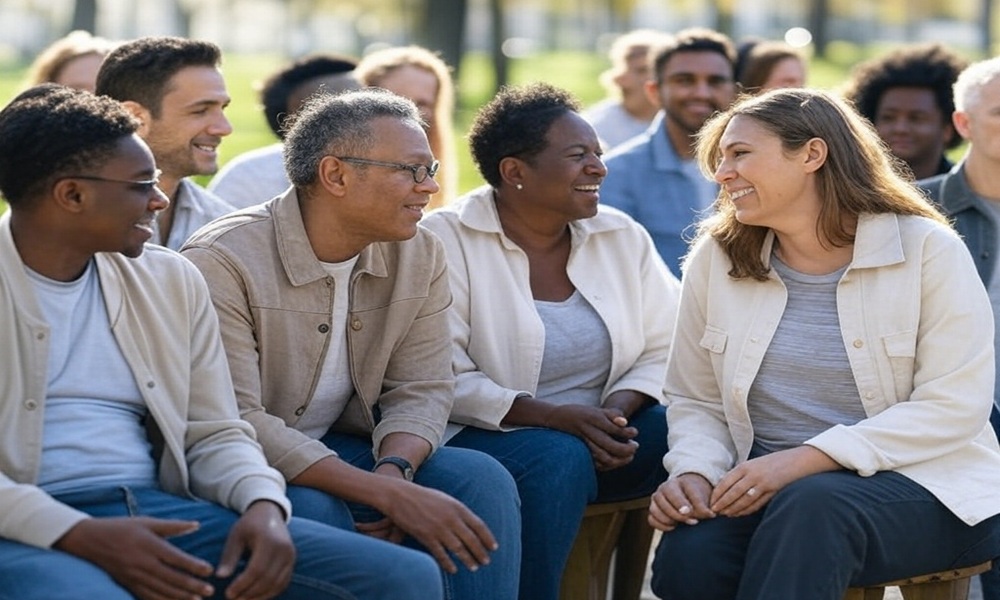Social media has revolutionized the way citizens interact with politics. Not only have these platforms provided unprecedented access to information, but they have also reshaped the landscape of political participation.
In today’s digitally connected world, political engagement no longer means merely casting a vote on Election Day; it encompasses a vast spectrum of activities—from following political discussions online to mobilizing grassroots activism.
Let’s explore the impact of social media on political participation and also examine both the opportunities and challenges that arise from this digital transformation.

Exploring the Impact of Social Media on Political Participation
Over the past two decades, the explosive growth of social media platforms like Facebook, Twitter, Instagram, TikTok, and YouTube has changed how political messages are disseminated and consumed. Initially seen as the tool of marginalized voices and activist groups, social media now reaches an ever-widening audience, democratizing political discourse.
Social media has revolutionized political participation by providing platforms for dialogue, mobilization, and awareness. It enables individuals to engage with political content, share opinions, and connect with like-minded communities.
Campaigns leverage social media to reach broader audiences, especially younger demographics, fostering inclusivity in political discourse. However, the impact isn’t entirely positive.
According to a Pew Research Center survey, a majority of young adults (ages 18 to 29) now rely on social media platforms for political news and updates rather than traditional media outlets, underscoring the shifting habits of emerging voters.
The spread of misinformation and echo chambers can polarize opinions and undermine informed decision-making. Despite these challenges, social media remains a powerful tool for activism, as seen in movements like #MeToo and Black Lives Matter, where digital platforms amplified voices and drove tangible change. Its role in shaping political landscapes continues to evolve, reflecting both the opportunities and complexities of the digital age.
Political campaigns have rapidly adapted to this trend. They now invest heavily in online advertising, influencer partnerships, and digital grassroots mobilization to reach and engage voters. This shift is supported by numerous studies that provide both qualitative and quantitative evidence of social media’s role in enhancing political participation. But as important as these benefits may be, the same platforms have also introduced concerns such as misinformation, echo chambers, and even political harassment.
Social Media as a Catalyst for Political Engagement
Social media has become a powerful catalyst for political engagement, transforming how individuals interact with political systems. It provides a platform for raising awareness, organizing movements, and amplifying marginalized voices.
Broadening Access and Informing the Electorate
One of the greatest advantages of social media is its ability to provide fast, convenient access to political information.
For many citizens, social media platforms serve as an alternative to cable television and newspapers. These platforms allow voters to access a wide range of opinions and news in real time.
Research by the Pew Research Center shows that nearly 57% of young adults now receive political information from social media at least a few times a month.
This ready access to information not only keeps citizens informed but also enables them to participate in political discussion and debate. For instance, interactive features on platforms like Twitter and Facebook encourage users to comment on news stories, share political content, and even organize campaigns.
As reported in multiple studies, social media has been linked to increased voter mobilization, particularly among the youth, who are more digitally engaged than older generations.
Mobilizing Grassroots Participation
Social media is also a powerful tool for grassroots mobilization and civic activism. The ease of sharing content, organizing events, and connecting with like-minded individuals has led to the rise of online movements that have directly influenced offline political action.
The 2008 U.S. presidential election is an early example of this phenomenon. Howard Dean’s campaign famously harnessed the power of online communities, converting digital engagement into real-world support and fundraising efforts. His campaign not only leveraged email and social media for fundraising but also organized face-to-face meetups and grassroots events that significantly boosted volunteer participation.
More recent examples include the Arab Spring, where platforms like Facebook and Twitter were used to coordinate protests and disseminate information under oppressive regimes.
In countries like Egypt, the number of tweets from the region surged from 2,300 to 230,000 per day during pivotal moments of the revolution.
Social media enables citizens—even in autocratic regimes—to break through government-imposed media blackouts, making them essential instruments for public expression and political reform.
The Youth Vote and Digital Political Engagement
Digital media statistics paint a clear picture of how social media is influencing political participation among young voters.
A survey conducted by the Pew Research Center highlighted that a median of 70% of adults across 19 advanced economies believe social media has made people more informed about current events, with young adults expressing especially positive views about the benefits of digital news sources.
In the United States, where social media usage is high among the younger population, 66% of young voters report that social media platforms play a vital role in their political engagement.
Furthermore, a study on social media usage and political participation in the U.S. reveals that nearly 31% of first-time voters in recent elections reported learning about the electoral process primarily through social platforms. This suggests that digital engagement is not just an adjunct to traditional political processes but is becoming a primary vehicle for political participation among the emerging electorate.
Online Political Participation and Voting Behavior
Research examining the relationship between online political activities and offline electoral participation shows a positive correlation.
A study utilizing data from the 2020 U.S. elections found that individuals who participated actively in online political discussions, shared news stories, or joined political groups were significantly more likely to vote, compared to those with minimal online engagement. In one instance, the analysis revealed that a one percent increase in online political activity corresponded with a 0.12 percent increase in offline political participation.
Additionally, experiments conducted in various electoral contexts have confirmed that social media tools such as the “I’m Voting” button and online voter registration drives can boost voter turnout by a measurable margin—ranging from a quarter to nearly one percentage point in several studies.
The Role of Influencers and Digital Mobilization
Political campaigns have increasingly turned to social media influencers to shape public opinion and drive voter engagement.
A recent survey by Izea reported that 82% of social media influencers planned to share political views during the 2024 election cycle, with 92% believing in their power to influence voters.
Influencers have proven especially effective among younger demographics, as seen during the 2023 Nigerian elections when online activism helped propel outsider candidate Peter Obi nearly to victory.
In the U.S., data shows that during the presidential campaigns, influencers and celebrity endorsements on platforms like Twitter and Instagram reached millions of voters.
Celebrities such as LeBron James and Taylor Swift, by voicing their support or criticism, have further shaped public discourse and mobilized voter turnout. These digital influencers not only amplify political messages but also bring a human and relatable element to political communication, thereby bridging the gap between traditional political rhetoric and the everyday experiences of young voters.
Challenges: Misinformation and Echo Chambers
Despite its many advantages, social media has also introduced significant challenges that can undermine healthy political participation.
One of the most pressing issues is the spread of misinformation—false news stories that are often designed to manipulate public opinion.
Studies have shown that during elections, fake news can spread at an alarming rate; for example, in the 2016 U.S. presidential elections, pro-Trump fake news articles were shared nearly four times as often as pro-Clinton stories. This misinformation not only confuses voters but also contributes to political polarization and erodes trust in traditional news outlets.
Another challenge is the phenomenon of echo chambers, wherein algorithms on platforms like Facebook and Twitter curate content that reinforces users’ preexisting views.
Research has indicated that such echo chambers lead to increased polarization by isolating individuals from opposing viewpoints. This effect is particularly concerning as it may reduce the diversity of information available to voters, hindering constructive political debate and compromise.
Political Harassment and the Chilling Effect
Social media’s role in facilitating political participation is further complicated by the rise in online harassment.
A survey conducted by Princeton University’s Bridging Divides Initiative found that over 50% of local elected officials reported increased levels of online insults and harassment ahead of recent elections, with women and minority officials disproportionately affected.
The hostile online environment not only discourages open political discourse but may also have a long-term chilling effect on political participation.
Many officials have expressed reluctance to engage on social media, citing fears of personal attacks and cyberbullying, which in turn reduces accountability and diminishes voter trust in political leadership.
How Can Political Systems Adapt?
Enhancing Digital Literacy
To mitigate the negative effects of misinformation and echo chambers, experts advocate for greater emphasis on digital literacy education.
Educating the public about how to critically evaluate online sources and understand the nuances of social media algorithms can empower citizens to make better-informed political decisions.
By improving digital literacy, governments and educational institutions can help bridge the gap between exposure and understanding—thus promoting a more engaged and discerning electorate.
Policy Interventions and Regulation
Several policy interventions have been proposed to address the challenges posed by social media.
Regulatory measures include stricter oversight of political advertisements on digital platforms, improved transparency regarding algorithmic decision-making, and enhanced measures to counter disinformation.
For example, some countries have implemented policies that mandate social media companies to disclose the sources of political ads and verify the identities of advertisers. Such measures could reduce the spread of manipulative content and restore public trust in online political discourse.
Promoting Cross-Platform Dialogue
Social media platforms have the potential to foster dialogue across ideological divides. By designing algorithms that expose users to a broader spectrum of opinions instead of reinforcing their existing beliefs, social media companies can help create a more balanced information environment.
Initiatives that promote media plurality and cross-platform collaborations could weaken the echo chamber effect and encourage more substantive political conversations. Furthermore, partnerships between social media companies and independent fact-checking organizations have proven effective in curbing misinformation and ensuring that users receive accurate and balanced news content.
Conclusion: The Role of Social Media in Politics
Social media plays a transformative role in politics, reshaping how information is shared and consumed. It serves as a platform for political campaigns, activism, and public discourse, enabling direct communication between leaders and citizens
Social media has indelibly transformed political participation by broadening access to information and facilitating grassroots mobilization. It has enabled ordinary citizens—particularly young people—to engage actively in political discourse through unprecedented digital avenues.
Studies consistently underscore a positive correlation between social media use and increased political participation, from enhanced voter turnout to stronger civic engagement.
For example, empirical research shows that a modest increase in online political activity can translate into measurable gains in offline political participation, reinforcing the importance of digital channels in modern democratic processes.
Yet, these benefits come with significant challenges. The spread of misinformation, the formation of ideological echo chambers, and the prevalence of online harassment pose serious risks to the integrity of political discourse.
While digital tools enable rapid mobilization and democratize political communication, they can also undermine public trust and worsen political polarization.
To harness the potential of social media while mitigating its risks, policymakers, educators, and technology companies must work collaboratively.
Enhancing digital literacy education, instituting robust regulatory frameworks, and promoting cross-platform dialogues are crucial steps toward ensuring that social media serves as a force for democratic enrichment rather than division.
As social media continues to evolve and shape the political landscape, its impact on political participation will remain a subject of dynamic research and policy debate.
Understanding these dynamics is essential for all stakeholders—from individual voters and political activists to government regulators and social media giants—to ensure that the digital sphere contributes constructively to democratic engagement.
The digital revolution is here to stay, and with it comes the responsibility to guard our democratic institutions against new-age challenges. Only through informed, critical, and active engagement can society hope to harness the full potential of social media as a tool for civic empowerment.



